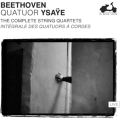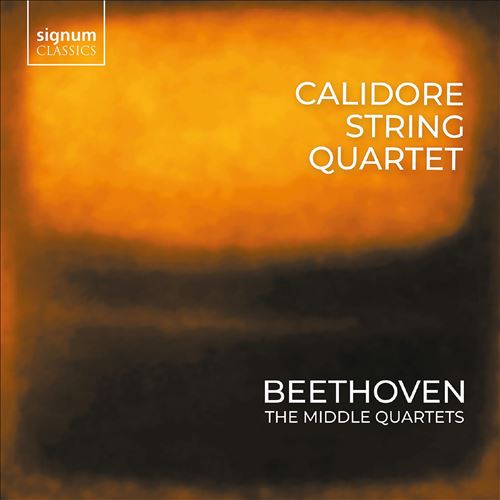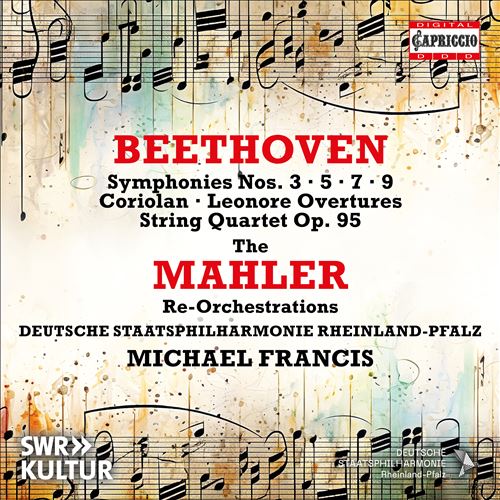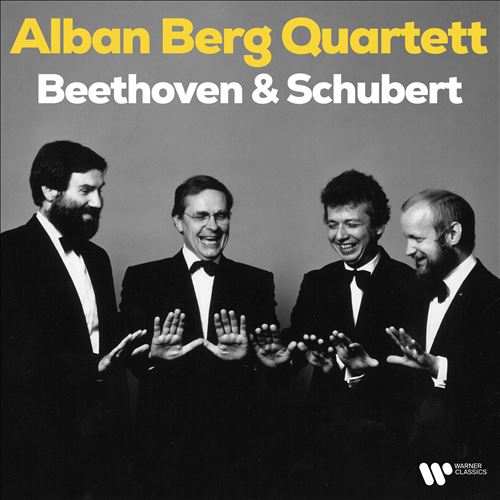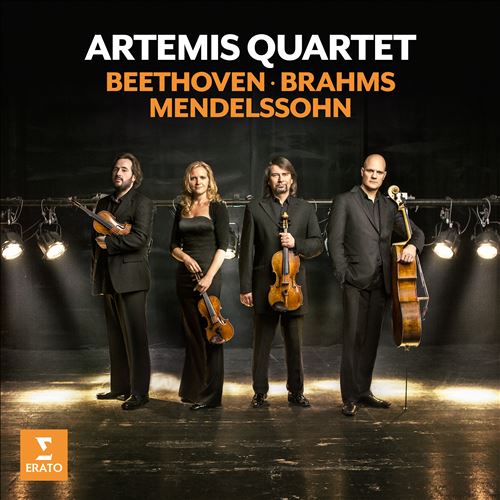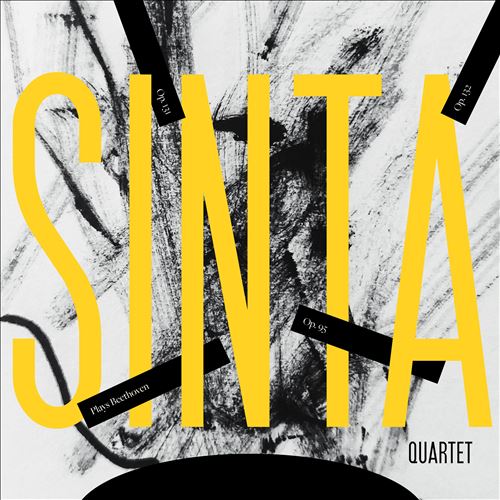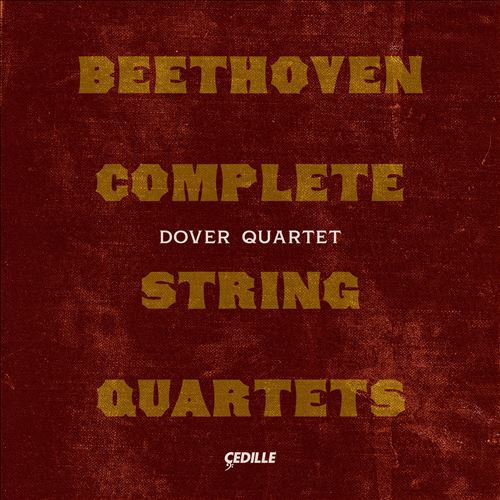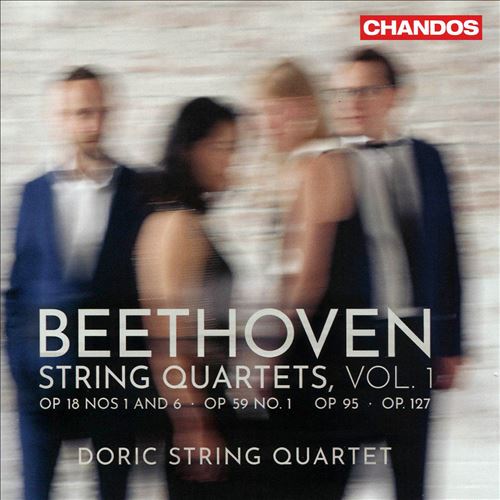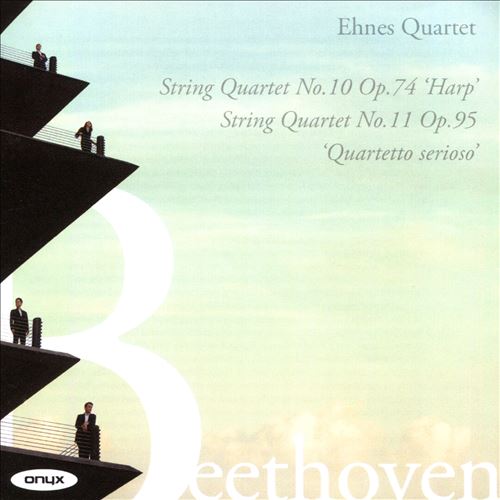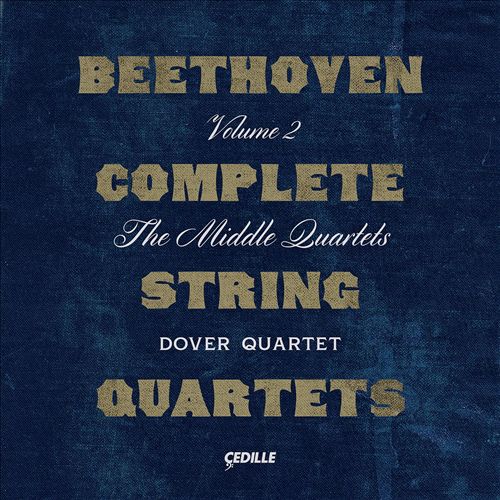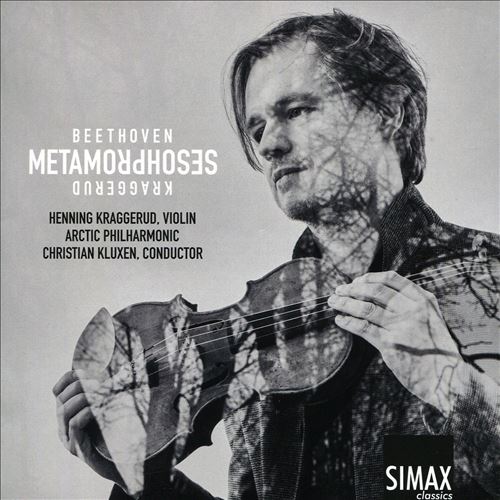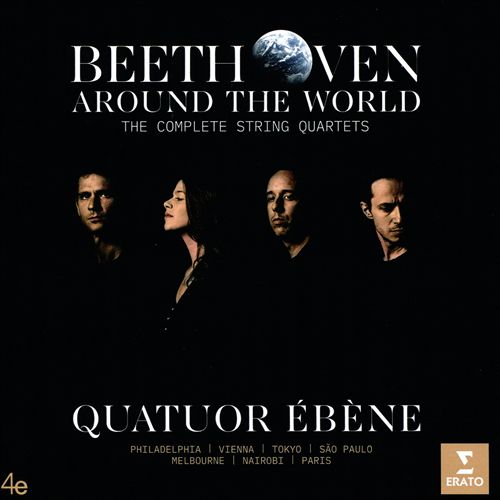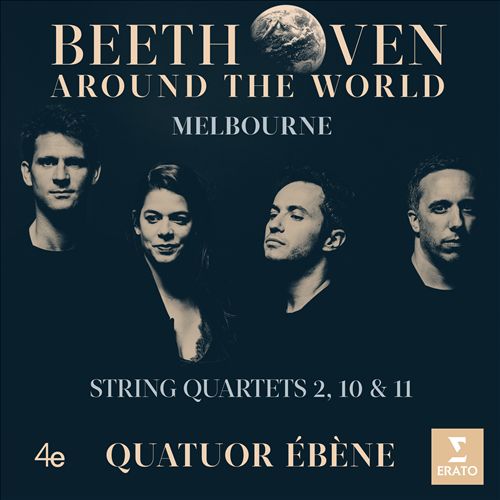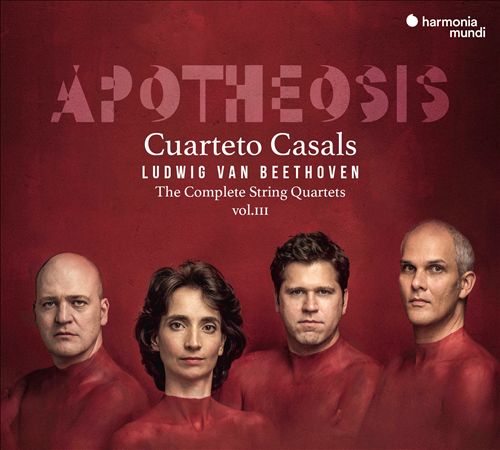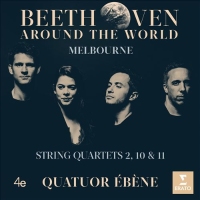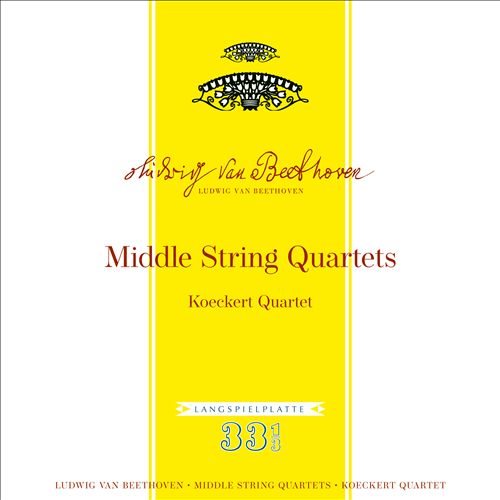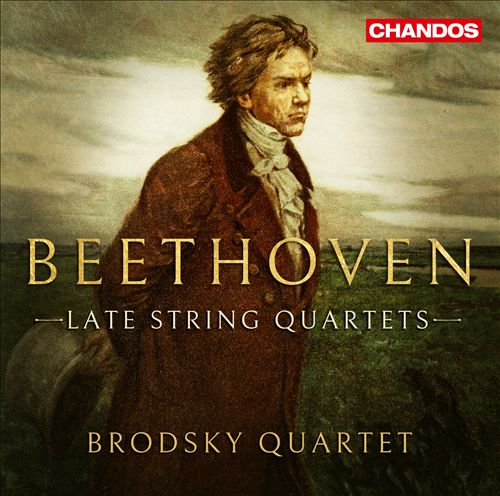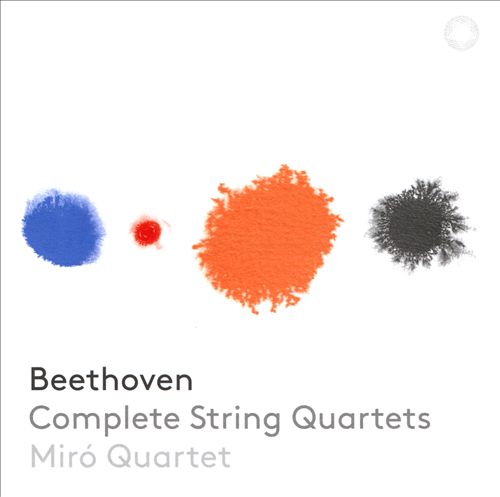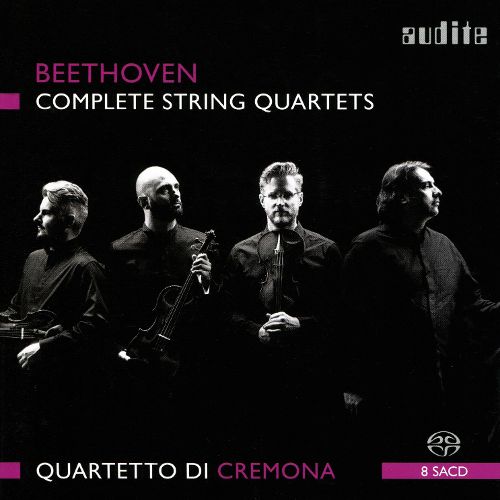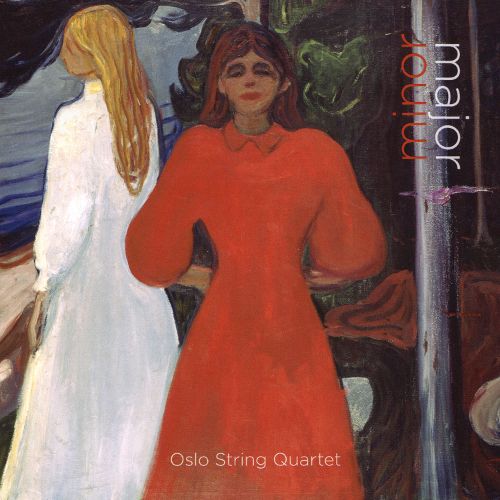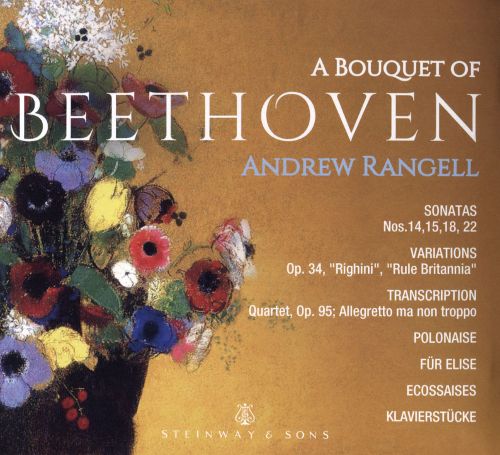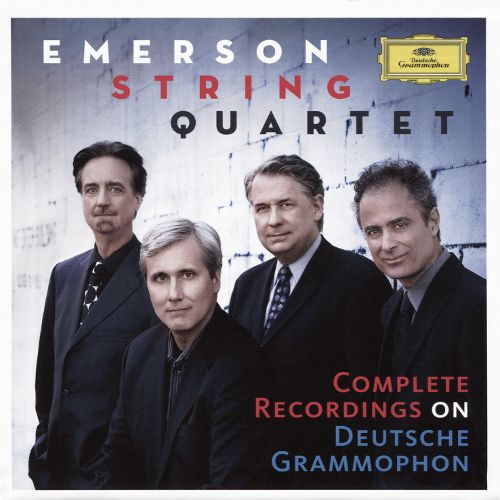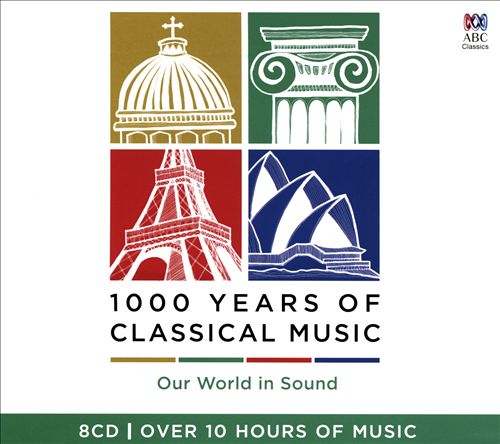Ludwig van Beethoven (루트비히 판 베토벤)
String Quartet No. 11 in F minor, Op. 95 "Serioso"
100
10,000
1,400
WORK INFO
작곡가: Ludwig van Beethoven (루트비히 판 베토벤)작곡년도: 1810평균연주: 20:53악장1Allegro con brio4:292Allegretto ma non troppo6:553Allegro assai vivace ma serioso4:274Larghetto espressivo - Allegretto agitato4:52Ludwig van Beethoven's opus 95, his String Quartet No. 11 in F minor, is his last before his late string quartets. It is commonly referred to as the "Serioso," stemming from his title "Quartett[o] Serioso" at the beginning and the tempo designation for the third movement. It is one of the shortest and most compact of all the Beethoven quartets, and shares a tonality (F) with the first and last quartets Beethoven published (Op. 18, no. 1, and Op. 135). In character and key, as well as in the presence of a final frenetic section in the parallel major, it is related to another composition of Beethoven's middle period — the overture to his incidental music for Goethe's drama Egmont, which he was composing in the same year he was working on this quartet. The autograph manuscript for this quartet is inscribed "October 1810", but the paper on which it appears does not match the variety Beethoven is known to have used at that time. It is more likely that he finished it several months later. It premiered in 1814 and did not appear in print until two years later. Beethoven stated in a letter to George Smart that "The Quartet [Op. 95] is written for a small circle of connoisseurs and is never to be performed in public." Upon listening to the piece, it becomes apparent why he made that assertion. This piece would have been quite out of character in 1810: it is an experiment on compositional techniques the composer would draw on later in his life. (Techniques such as shorter developments, interesting use of silences, metric ambiguity, seemingly unrelated outbursts, and more freedom with tonality in his sonata form.) The historical picture of this time period helps to put the piece in context. Napoleon had invaded Vienna earlier that year, and this upset Beethoven greatly. All of his aristocratic friends had fled Vienna, but Beethoven stayed and dramatically complained about the loud bombings.
The Quartet is in four movements:From WIKIPEDIA
RELEASED ALBUMS
-
Ludwig van Beethoven: Late String QuartetsMay 16, 2025
-
Beethoven, Ries, Rode: String QuartetsApril 4, 2025
-
Beethoven: The Complete String QuartetsNovember 1, 2024
-
Beethoven: The Middle QuartetsSeptember 13, 2024
-
Beethoven: The Mahler Re-OrchestrationsJune 7, 2024
-
Beethoven & SchubertFebruary 9, 2024
-
Beethoven, Brahms, MendelssohnFebruary 2, 2024
-
Sinta Quartet Plays Beethoven: Op. 95, Op. 131, Op. 132December 15, 2023
-
Beethoven: Complete String QuartetsNovember 17, 2023
-
Beethoven: String Quartets, Vol. 1November 10, 2023
-
Beethoven: String Quartet No. 10 Op. 74 'Harp'; String Quartet No. 11 Op. 95 'Serioso'November 5, 2021
-
Beethoven Complete String Quartets, Vol. 2: The Middle QuartetsOctober 8, 2021
-
Metamorphoses: Beethoven, KraggerudAugust 28, 2020
-
Classic 100 BeethovenJuly 3, 2020
-
Beethoven Around the World: The Complete String QuartetsMay 15, 2020
-
Beethoven Around the World: Melbourne - String Quartets 2, 10 & 11April 24, 2020
-
Apotheosis: Beethoven - Complete String Quartets, Vol. 3April 10, 2020
-
Beethoven: The String Quartets - Live from Suntory Hall, TokyoMarch 27, 2020
-
Beethoven Around the World: Melbourne - String Quartets 11 "Quartetto Serioso",4. Larghetto espressivoMarch 20, 2020
-
Beethoven: Seven Legendary RecordingsMarch 20, 2020
-
Ludwig van Beethoven: Middle String QuartetsFebruary 28, 2020
-
Beethoven: Late String QuartetsJanuary 3, 2020
-
Beethoven: Complete String QuartetsNovember 15, 2019
-
Innovators: Bartók, Beethoven, DebussyMarch 1, 2019
-
Beethoven: Complete String QuartetsJuly 6, 2018
-
Beethoven: The Middle QuartetsSeptember 1, 2017
-
Minor MajorAugust 18, 2017
-
A Bouquet of BeethovenAugust 18, 2017
-
Complete Recordings on Deutsche GrammophonJuly 15, 2016
-
1000 Years of Classical Music: Our World in SoundMarch 18, 2016
ALBUM MUSIC
WORKS SHOUTS




